Did Martin Beaumont, chief executive of the Co-operative Group, know something when he chaired the ACS conference in Blackpool several years ago and said he foresaw more upstream collaboration between independent retailers? Last week's news that the group was joining Spar in a buying alliance suggests he did.
But according to Jerry Marwood, MD of Spar, Beaumont's words were only the catalyst to the deal now being described as the most significant development in the sector this year. "At the time we were considering this type of relationship but for various reasons we couldn't identify the right partner. When he put his view we saw the opportunity to talk," he says.
"Unfortunately it took quite a long time to create the framework we could use to discuss such a sensitive issue while retaining our competitive positions."
Under the deal, the two rivals will pool volumes in targeted areas of own-label products, to an estimated cost value of £200m. This will enable the 5,742 stores they represent to secure better prices and a more competitive position.
Guy McCracken, chief executive, food retail, for the Co-operative Group, says: "Spar is a long-term player with integrity and a good partner for us. It has taken several months to formalise the deal but this is a sensible step forward." Since the announcement last Friday (The Grocer, 26 August) the response has been generally positive. In fact, all the Spar retailers contacted by The Grocer were confident the deal would help them source a wider variety of own-label lines at cheaper prices.
Analysts are equally upbeat. Alastair Lockhart, retail analyst at market research group Verdict, argues: "Scale is crucial in today's market. When negotiating with suppliers, the more volume you buy, the better terms you can get."
The immediate cost benefits will be felt in limited areas, ranging from olive oils and fats to sauces, pickles and frozen foods. But if the 12-month trial is successful, the project could snowball into other categories. Lizette Craig, MD of Scottish Spar chain Botterills, says: "The Co-operative Group does fresh food a lot better than Spar, so we could probably learn there."
Scott Annan, director of market analyst Srcg, agrees: "Once you have learned from the straightforward categories, you could look at areas such as fresh food, ready meals and sandwiches."
Eventually, he says, joint promotions and even fully integrated joint distribution could be considered, but he says the benefits would probably be confined to own-label ranges.
According to Spar's Marwood, the only serious issue raised so far has been where the initiative will lead to. He stresses that it is not about a merger on a larger scale.
"We need to implement the idea we already have before we start dreaming up further initiatives and this is where we will put all our effort for the foreseeable future.
"A fundamental reason for Spar's existence is to preserve the independent nature of its constituent businesses - retailers and wholesalers - so it makes little sense to merge with another."
Other players are more sceptical. Martin Williams, MD of buying group Landmark, says: "I've got huge respect for Spar, so I was surprised by this move. It's not exactly a vote of confidence in its buying team." He says he can see no significant cost benefits because the groups involved continue to offer two distinct brands.
The pooled business is expected to go out to tender. Some suppliers will be dropped while others will gain extra business and new ones may be secured. Patrick Mitchell-Fox, senior business analyst at IGD, says: "It could lead to rationalising the supply base and bigger single orders to suppliers. Smaller suppliers could be the people they would want to deal with in some areas."
But Annan sounds a note of caution. Alliances such as these often fail for reasons ranging from "the current infrastructure of both parties to egos getting in the way," he says.
Mark Gillett, sales director of Gillett's, also says success is not guaranteed. "Spar retailers are independent, so there are no guaranteed outlets for product."
That could lead to problems guaranteeing regular increased orders for manufacturers, he says.
Clearly, then, both parties will have to work hard at keeping the project on track. However, with the experienced hands of McCracken and Marwood steering it, there's a good bet it could go all the way.the verdict
?"We're hoping to see reductions in cost prices. We're not seeing what we should be seeing when competing with major supermarkets on price."
Lizette Craig
MD of Scottish Spar chain Botterills
? "Fresh and chilled is one area that will be looked at fairly early on."
Spokesman
Spar retailer CJ Lang in Scotland
? "I've got huge respect for Spar, so I was surprised by this move. It's not exactly a vote of confidence in its buying team."
Martin Williams
MD of buying group Landmark
? "Spar retailers are independent, so there are no guaranteed outlets for product."
Mark Gillett
Sales director of Gillett's
But according to Jerry Marwood, MD of Spar, Beaumont's words were only the catalyst to the deal now being described as the most significant development in the sector this year. "At the time we were considering this type of relationship but for various reasons we couldn't identify the right partner. When he put his view we saw the opportunity to talk," he says.
"Unfortunately it took quite a long time to create the framework we could use to discuss such a sensitive issue while retaining our competitive positions."
Under the deal, the two rivals will pool volumes in targeted areas of own-label products, to an estimated cost value of £200m. This will enable the 5,742 stores they represent to secure better prices and a more competitive position.
Guy McCracken, chief executive, food retail, for the Co-operative Group, says: "Spar is a long-term player with integrity and a good partner for us. It has taken several months to formalise the deal but this is a sensible step forward." Since the announcement last Friday (The Grocer, 26 August) the response has been generally positive. In fact, all the Spar retailers contacted by The Grocer were confident the deal would help them source a wider variety of own-label lines at cheaper prices.
Analysts are equally upbeat. Alastair Lockhart, retail analyst at market research group Verdict, argues: "Scale is crucial in today's market. When negotiating with suppliers, the more volume you buy, the better terms you can get."
The immediate cost benefits will be felt in limited areas, ranging from olive oils and fats to sauces, pickles and frozen foods. But if the 12-month trial is successful, the project could snowball into other categories. Lizette Craig, MD of Scottish Spar chain Botterills, says: "The Co-operative Group does fresh food a lot better than Spar, so we could probably learn there."
Scott Annan, director of market analyst Srcg, agrees: "Once you have learned from the straightforward categories, you could look at areas such as fresh food, ready meals and sandwiches."
Eventually, he says, joint promotions and even fully integrated joint distribution could be considered, but he says the benefits would probably be confined to own-label ranges.
According to Spar's Marwood, the only serious issue raised so far has been where the initiative will lead to. He stresses that it is not about a merger on a larger scale.
"We need to implement the idea we already have before we start dreaming up further initiatives and this is where we will put all our effort for the foreseeable future.
"A fundamental reason for Spar's existence is to preserve the independent nature of its constituent businesses - retailers and wholesalers - so it makes little sense to merge with another."
Other players are more sceptical. Martin Williams, MD of buying group Landmark, says: "I've got huge respect for Spar, so I was surprised by this move. It's not exactly a vote of confidence in its buying team." He says he can see no significant cost benefits because the groups involved continue to offer two distinct brands.
The pooled business is expected to go out to tender. Some suppliers will be dropped while others will gain extra business and new ones may be secured. Patrick Mitchell-Fox, senior business analyst at IGD, says: "It could lead to rationalising the supply base and bigger single orders to suppliers. Smaller suppliers could be the people they would want to deal with in some areas."
But Annan sounds a note of caution. Alliances such as these often fail for reasons ranging from "the current infrastructure of both parties to egos getting in the way," he says.
Mark Gillett, sales director of Gillett's, also says success is not guaranteed. "Spar retailers are independent, so there are no guaranteed outlets for product."
That could lead to problems guaranteeing regular increased orders for manufacturers, he says.
Clearly, then, both parties will have to work hard at keeping the project on track. However, with the experienced hands of McCracken and Marwood steering it, there's a good bet it could go all the way.the verdict
?"We're hoping to see reductions in cost prices. We're not seeing what we should be seeing when competing with major supermarkets on price."
Lizette Craig
MD of Scottish Spar chain Botterills
? "Fresh and chilled is one area that will be looked at fairly early on."
Spokesman
Spar retailer CJ Lang in Scotland
? "I've got huge respect for Spar, so I was surprised by this move. It's not exactly a vote of confidence in its buying team."
Martin Williams
MD of buying group Landmark
? "Spar retailers are independent, so there are no guaranteed outlets for product."
Mark Gillett
Sales director of Gillett's









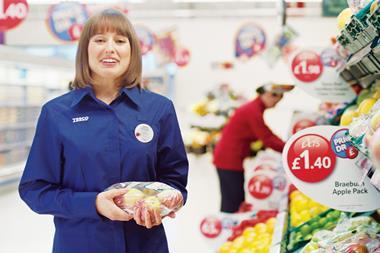


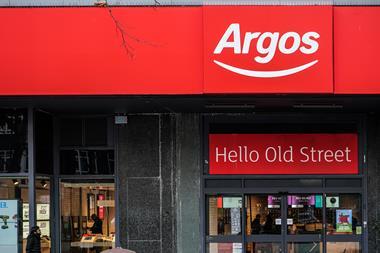
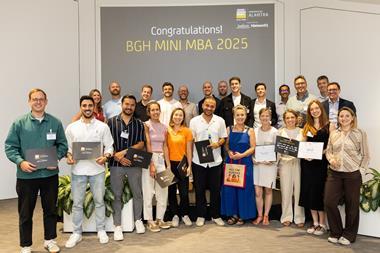

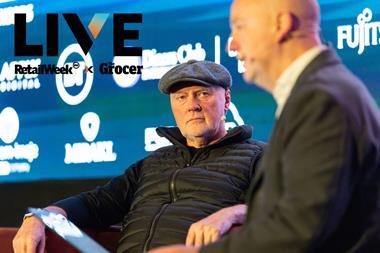
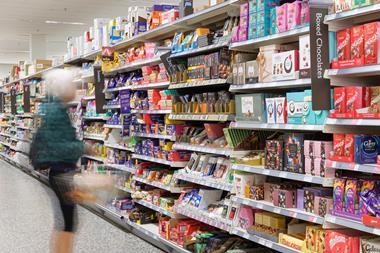
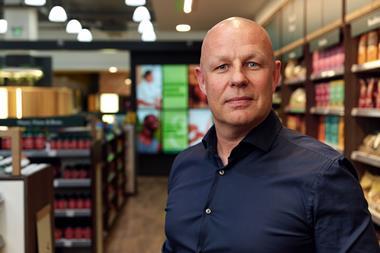

No comments yet